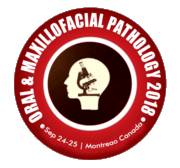
Josh Delacruz
University of Winnipeg,Manitoba, Canada
Title: Preventing Oral Cavity Cancers by Reducing Radioactive Particle Delivery in Cigarettes Using a Novel Filter Device
Biography
Biography: Josh Delacruz
Abstract
In 1998 major American tobacco corporations were sued and became legally obligated to disclose their internal documents as part of the court-ordered Master Settlement Agreement. These documents revealed that as early as the 1960’s, the tobacco industry was aware that phosphate fertilizer was radioactively contaminated with Polonium 210. However, these tobacco companies continued to use this type of fertilizer, knowingly selling contaminated tobacco products to consumers. Radioactive particles from smoke inhalation can become lodged in the tissues of the oral cavity and can damage DNA structure, leading to cancer cell development. After conducting a randomized, controlled and blinded screening experiment on popular cigarette brands, it was found that all brands tested had alarming levels of radioactivity, exceeding internationally recognized thresholds for surface contamination. The most radioactive brand was ‘Winston’, the least being ‘Camels’. Using a Welch’s t-test, all brands demonstrated significantly higher radioactivity than blank placebos (p<0.05). A novel cigarette pre-filter was designed and tested on the most radioactive brand of cigarettes and was found to be an excellent filter against radioactive particles. Radioactive particle delivery was reduced by a statistically significant amount (p<0.003) using this novel, cost effective and simple zeolite pre-filter . According to the U.S. Surgeon General, radioactive contamination is responsible for 90% of all tobacco related oral cancers. Very little research effort is being done currently, although this study may encourage others to revisit the inconvenient truth about cigarettes and its negative impact in the field of dental health.

